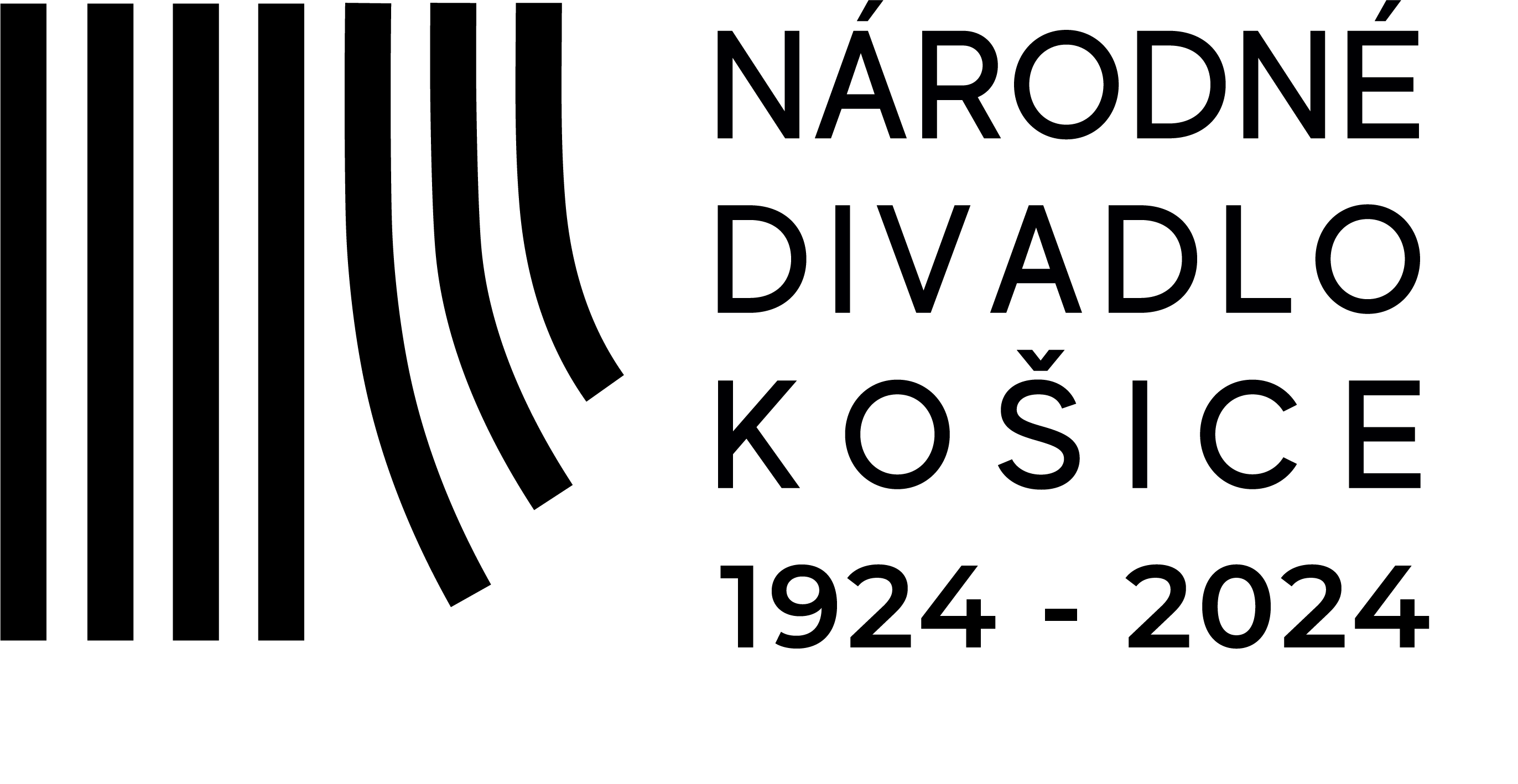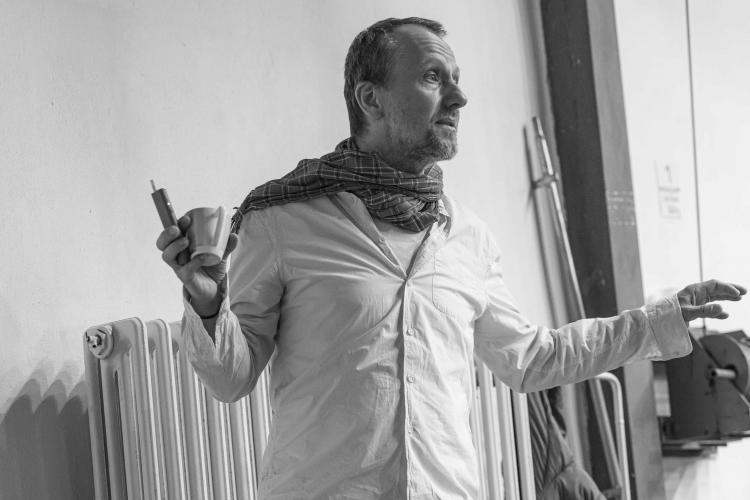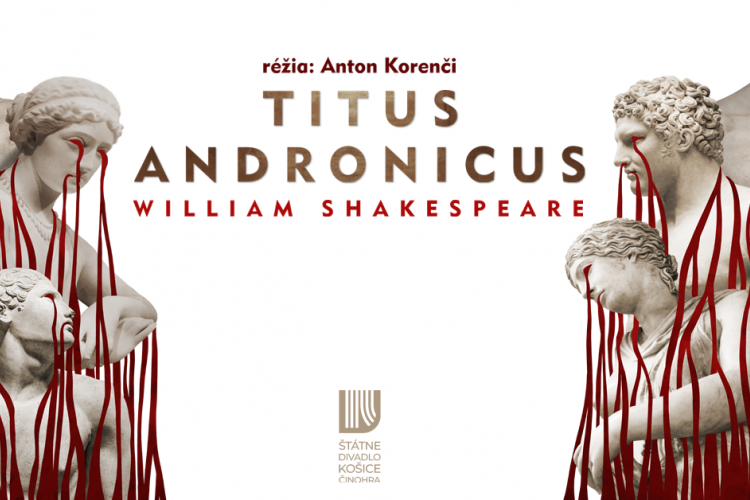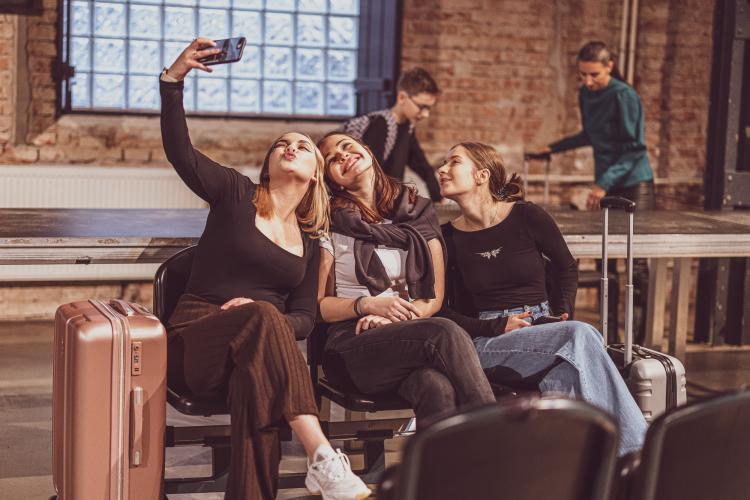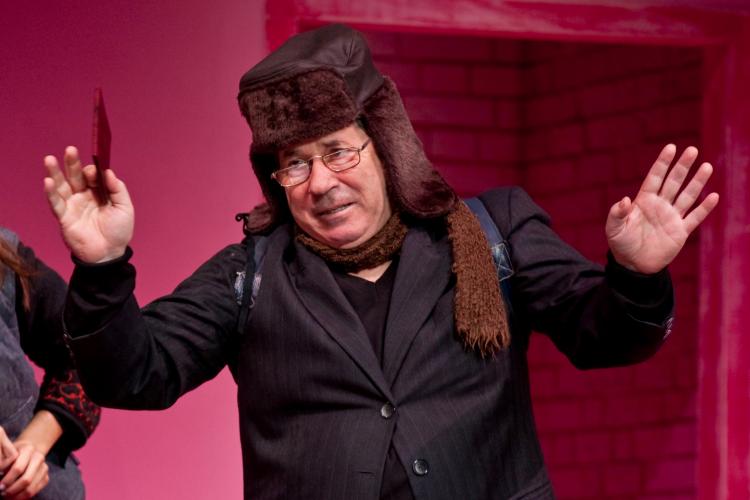The drama adaptation of an encyclopaedic novel on human soul, not merely Russian soul,by Dostoyevsky - Demons. Adaptation process brings questions such aswhat the new drama adaptation INCLUDES compared to its epic original, WHAT IT SHOULD INCLUDE, and WHAT IT DOES NOT INCLUDE BUT SHOULD BRING IT...
The new season’s premiere at Drama Company ŠDKE (abovementioned Dostoyevsky’s work) shows creative and imaginatively heuristic process of adaptation (adaptation and direction by A. Korenči) when preparing basis for subsequent staging process. We may see this in successful selection of subtopics, motives, characters, time and place context that make semantic basis for spectacular contemporary piece, such as the adaption of the novel. We see classically intertwined literature and theatre; TELLING is transformed into SHOWING. It results into an immersive theatre piece with intensive visual and acoustics including music (a suggestive composition by V. Šarišsý combined with his live piano improvisation, directly from the orchestra pit, and underlying playback). These means of expressions are parts of consistently built-up direction concept by A. Korenči. He also applies other means of expression. For example: scenography by L. Šedivá to interpret the text. Dostoyevsky’s poetics is built-in in stage setting: dominant, hyperbolized wooden structure which looks like one of the letters of the alphabet, integrated in the revolving stage which allows a multiple transformation of time and place context, such as time retrospectives, time changes in the play. Stage is divided into walk through trails and flat geometric shapes, pedestals representing some scenic objects from interior and exterior (such as tables, resting places, beds, stairs etc.) that make space for dramatic sometimes almost detective and paradoxically ironic and sarcastic but, especially, tragic situations that were extracted from the epic text and its subsequent transformation into dramatic/theatre language. Interprets move on stage within the objects with confidence, scene by scene they change their view angles; and in this way they reflect the world, their truth. All of them promote their truth mostly egoistically as the only possible and acceptable. This supports one of the leading motives of Demons – ostentatious unmasking of chaos in town, region, world. Korenči’s imagination makes semiotic units from individual adaptation motives that enable identification when making an in-depth analysis of Demons. E. g. kinetics of individual characters – the characters are unexpectedly, following some musical patterns, spinning around in a pursy way. They are hurrying irrationally, running around, stand in each other’s way, compete with each other, while director shows them as black silhouettes of urban society, which unexpectedly enriches means of expression. Other means of expression are colours e. g. red colour – which is in fact subtle ideological modification. We may also see metaphorical modifications e. g. transformation of the character Matryoshka – narrator and at the same time tragic girl who, betrayed by God, ends up in fatal death.
What was not presented in the novel in this way, appears in the drama adaptation as that what COULD HAVE BEEN THERE, EVEN SHOULD HAVE BEEN THERE, so that reflections of the world are enriched with the quality that is inherent in the story. Creative team brings value-based, authentic version of the story.
(P.S.
Our madam professor at the Secondary Grammar School, who was single all her life, recommended to the students, films and plays. She used to say laconically “A MUST SEE”. This also applies to the Demons in Košice theatre. It is a successful adaptation project by the new theatre management and its drama company. We reminded the same to the students of the University in Prešov. They were impressed by the quality of acting performances. THEY WILL TRY TO WRITE ABOUT IT... That is why, we do not analyse interpretation performances of the ensemble in this reflection.)
prof. PhDr. Karol Horák, CSc., theatrologist
